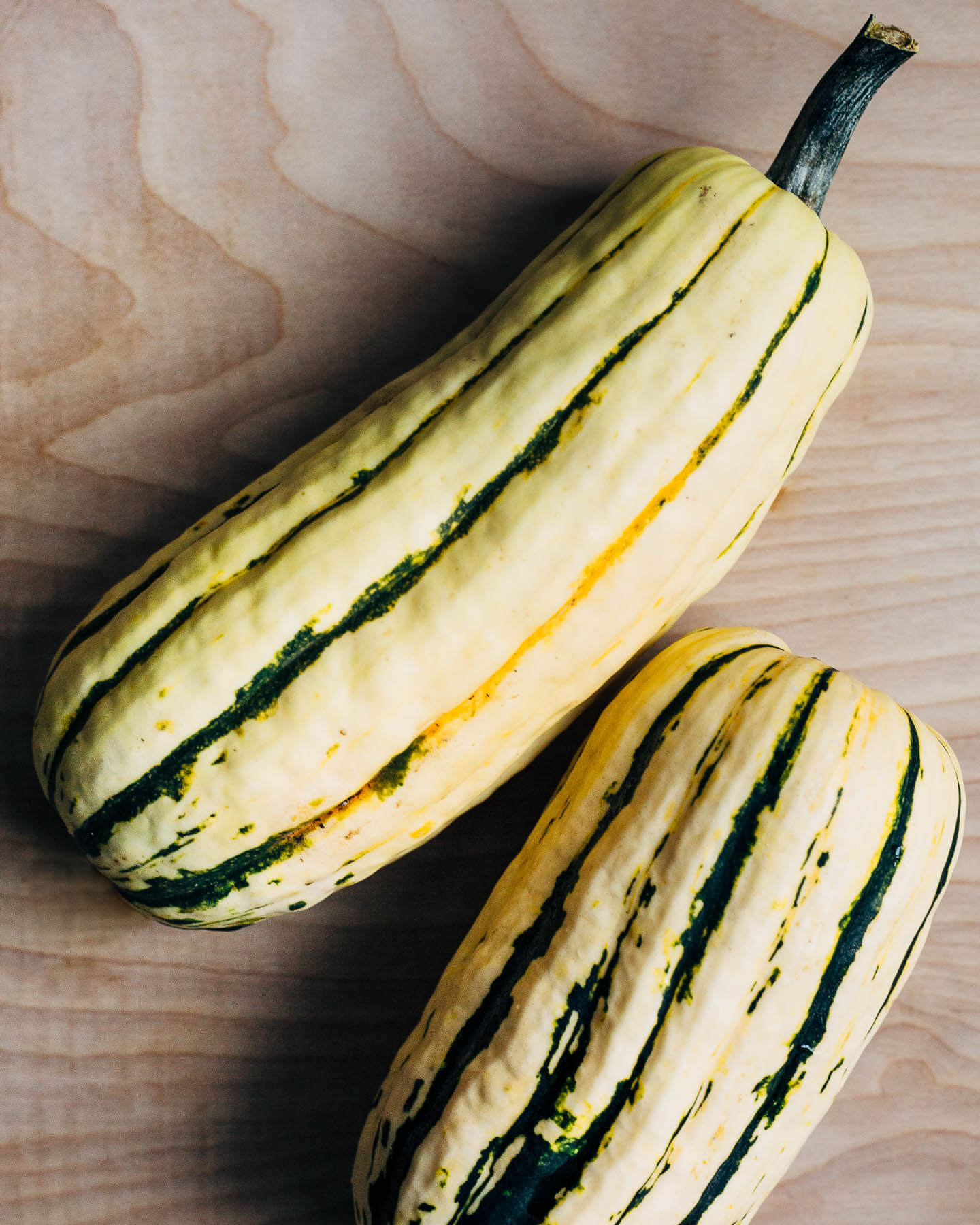

It also contains vitamins A and C which are essential for fighting off infection. It is rich in antioxidants, which help protect your body from damage. Boosts the immune systemĭelicata squash is a great way to boost your immunity. This causes the liver to convert more cholesterol into bile, thus decreasing cholesterol numbers. The fiber in delicata squash lowers cholesterol by binding to bile acids, which prevents their reabsorbed into the body. However, too much cholesterol can be dangerous. It helps the body create hormones, and it’s also important for brain health. Lowers cholesterolĬholesterol is a type of fat that is important for your body’s cell membranes.
#Delicata squash free#
It’s also high in antioxidants, which can help to protect your digestive system against damage from free radicals. It contains fiber, which helps to clean out the gut and reduce constipation. Improve gastrointestinal healthĭelicata squash is a great way to promote digestion.

In a study published in 2008, participants who consumed foods rich in these compounds had a lower risk of developing both conditions than those who did not. These carotenoids are good for reducing the risk of eye diseases such as cataracts and age-related macular degeneration. In addition to providing folate, beta-carotene, and other antioxidants that can help protect your eyes from free radicals, delicata squash also contains lutein and zeaxanthin. Phosphorus: 55.4 milligrams, or 6 percent of the daily requirementĪmazing Health Benefits of Delicata Squash Help maintain vision.Copper: 0.1 milligrams, or 7 percent of the daily requirement.Iron: 1.2 milligrams, or 7 percent of the daily requirement.Calcium: 84 milligrams, or 8 percent of the daily requirement.Folate: 38.9 micrograms, or 10 percent of the daily requirement.Niacin: 2 milligrams, or 10 percent of the daily requirement.Thiamine: 0.1 milligrams, or 10 percent of the daily requirement.Vitamin B6: 0.3 milligrams, or 13 percent DV of the daily requirement).Vitamin E: 2.6 milligrams, or 13 percent of the daily requirement.Magnesium: 59.4 milligrams, or 15 percent of the daily requirement.Potassium: 582 milligrams, or 17 percent of the daily requirement.Manganese: 0.4 milligrams, or 18 percent of the daily requirement.Vitamin C: 31 milligrams, or 52 percent of the daily requirement.Vitamin A: 22,869 IU, or 457 percent of the daily requirement.One cup of delicata squash contains about: It’s low in carbohydrates but rich in vitamin C and A, making it suitable for kicking off colds and flu during the winter. It has been compared to butternut squash in terms of nutrition and can be used in most recipes that call for butternut. It is available in many grocery stores during the winter and fall seasons.
#Delicata squash skin#
It has a cylindrical or oblong shape and an edible skin and flesh that has a flavor similar to sweet potatoes.ĭelicata squash has a soft, buttery texture and a sweet flesh that can be eaten raw or cooked. See, Yellow Squash Nutrition And Benefits and Acorn Squash What Is Delicata Squash?Īlso known as Bohemian squash, peanut squash, or sweet potato squash, delicata squash is a small, yellow winter squash with yellow-green rinds and orange-yellow flesh.
#Delicata squash how to#
Find out more about why it’s an essential fall vegetable and how to incorporate it into your diet easily. Delicata squash isn’t your typical fall vegetable – most people don’t even know what it is! But this sweet, nutty, tender squash should be part of your winter go-to, no matter where you live.


 0 kommentar(er)
0 kommentar(er)
